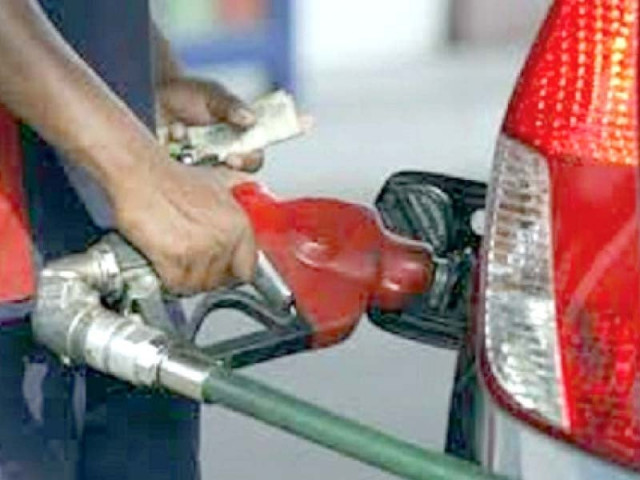Businessmen demand reduction in oil prices
Government already committed to imposing PDL, GST on petroleum products

Korangi Association of Trade and Industry (KATI) President, Salman Aslam expressed concern over the government’s delay in revising prices for petroleum products.
“There is a downward trend in global oil prices and the government should immediately announce a reduction in petrol prices so that inflation and production costs are reduced,” said Salman.
Welcoming the Saudi government’s decision to offer a one-year extension of $3 billion to stabilise Pakistan’s foreign exchange reserves he said, “Saudi Arabia is Pakistan’s best friend and has helped the country in many difficult times in the past. With this decision, Pakistan’s foreign exchange reserves and economic stability in the country will improve,” he added.
While demand for a reduction in prices is being put forward, analysts contend that there are multiple factors influencing price determination.
Head of Research at Arif Habib Limited (AHL), Tahir Abbas pointed out that, “Local petroleum prices are not solely dependent on international oil prices. Rupee-dollar parity is accounted for alongside taxation including Petroleum Development Levy (PDL) and General Sales Tax (GST).”
“The government has committed a hefty amount of tax collection under PDL in the budget for fiscal year 2022-2023 and reduction in local petroleum prices is only possible after imposition of PDL in line with the International Monetary Fund (IMF). In less than one year, petroleum prices have more than doubled and that has raised the cost of doing business for local industries,” he added.
Taurus Securities Head of Research, Mustafa Mustansir explained that while the demand to reduce prices was understandable, it would be a challenge for the government given their revenue targets. “In the IMF deal, the government has already committed to the imposition of a petroleum levy as well as sales tax on petroleum products. Any relief in the form of lower cost of supply is likely to be offset by these factors, in addition to the impact of rupee devaluation against the dollar.”
Fawad Basir, Head of Research at Al Habib Capital Markets, urged the businessmen to recall the days during which international oil prices hit $120 per barrel, an all-time high, and there was no sales tax or petroleum development levy. “Essentially, this was the subsidy given to protect businesses from the effects of higher inflation,” he explained.
Published in The Express Tribune, September 21st, 2022.
Like Business on Facebook, follow @TribuneBiz on Twitter to stay informed and join in the conversation.



















COMMENTS
Comments are moderated and generally will be posted if they are on-topic and not abusive.
For more information, please see our Comments FAQ